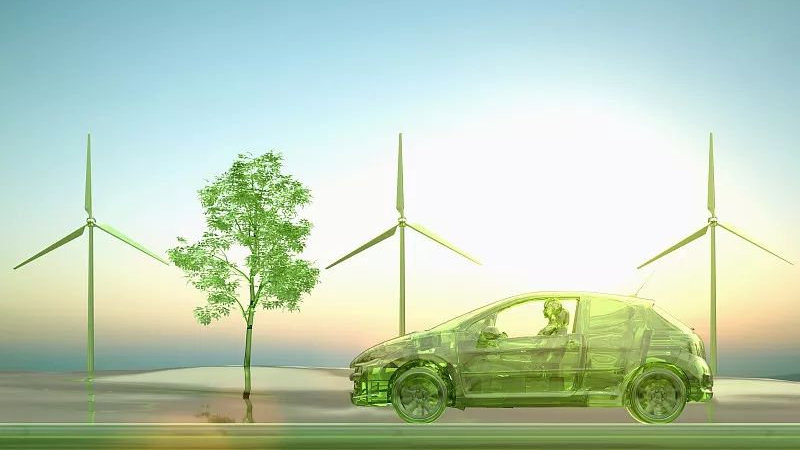
Apr . 12, 2024 15:48 Back to list
The U.S. government is providing $4 billion in tax credits to support clean energy supply chains
The U.S. Department of Energy, the U.S. Treasury, and the Internal Revenue Service have jointly announced a significant initiative aimed at accelerating domestic clean energy manufacturing and reducing greenhouse gas emissions from industrial production. The announcement includes the allocation of $4 billion in tax credits for over 100 projects spread across 35 states. This move is part of the U.S. Advanced Energy Project Tax Credit 48C program, which has been established under the U.S. Inflation Reduction Act with a total budget of $10 billion. A crucial aspect of this program is the allocation of at least $4 billion to designated energy community projects that are geared towards creating high-paying jobs, cutting energy costs, and supporting the climate, supply chain, and energy security objectives of the Biden-Harris Administration's "Investing in America Agenda."
The first round of allocations and applications for the 48C program has been unveiled, with approximately $1.5 billion dedicated to supporting energy community projects. Among the key areas identified for funding, the clean energy manufacturing and recycling sector emerges as a significant recipient, with $2.7 billion earmarked for tax credits. This allocation accounts for 67% of the total funds in the first round, focusing on projects relating to clean energy manufacturing and clean hydrogen, power grids, electric vehicles, nuclear power, solar photovoltaics, and wind power. The projects under this category encompass a wide range of components and technologies essential for advancing clean energy solutions and reducing carbon footprints across various industries.

Additionally, the critical materials recycling, processing, and refining sectors have been allocated $800 million in tax credits, representing 20% of the initial round of funding. These projects play a vital role in ensuring energy system security and facilitating the transition to cleaner energy sources. Areas such as electrical steel applications, lithium-ion battery recycling, and rare earth projects are identified as key priorities that align with the overarching objectives of the program. Furthermore, the industrial decarbonization sector is slated to receive $500 million in tax credits, constituting 13% of the first round of funding. Projects under this category focus on implementing low-carbon fuels and raw materials in industries like chemicals, food and beverages, pulp and paper, biofuels, glass, ceramics, steel, automotive manufacturing, and building materials.
The strategic allocation of tax credits to these sectors reflects a concerted effort to drive innovation, boost economic growth, and tackle pressing environmental challenges. By directing financial support towards projects that promote clean energy manufacturing, critical materials recycling, and industrial decarbonization, the program aims to foster sustainable development and resilience within the U.S. industrial landscape. Notably, these initiatives are poised to generate job opportunities, enhance energy efficiency, and contribute to the nation's transition towards a lower-carbon future. The emphasis on supporting energy community projects underscores the administration's commitment to building a more robust and interconnected clean energy ecosystem that benefits both the economy and the environment.
The tax credit allocations under the 48C program signal a significant step towards advancing clean energy technologies and reducing emissions from industrial activities. By incentivizing investments in key areas such as clean energy manufacturing, critical materials recycling, and industrial decarbonization, the program seeks to drive tangible outcomes in aligning industrial practices with climate and energy goals. The diverse array of projects selected for funding demonstrates a comprehensive approach to addressing the challenges of energy transition and sustainable manufacturing practices. As these initiatives unfold and gain momentum, they are poised to contribute meaningfully to building a resilient, low-carbon economy that prioritizes innovation, efficiency, and environmental stewardship.
In conclusion, the $4 billion in tax credits allocated for clean energy manufacturing and related sectors represents a significant commitment towards advancing the U.S. clean energy agenda and reducing greenhouse gas emissions. The targeted support for energy community projects underscores a holistic approach to fostering economic growth, job creation, and environmental sustainability. As these initiatives unfold, they are expected to play a crucial role in accelerating the transition towards a cleaner, more resilient industrial landscape while driving innovation and competitiveness within the clean energy sector. The strategic deployment of tax credits through the 48C program reflects a concerted effort to leverage fiscal incentives for promoting clean energy technologies and driving sustainable practices across diverse industries, ultimately contributing to a more sustainable and prosperous future for the United States.
-
Stackable Battery System: Revolutionizing C&I Energy Storage with Suzhou ACDC
NewsJul.21,2025
-
Revolutionizing EV Charging with Suzhou DC Quick Charging Stations Solutions
NewsJul.21,2025
-
Revolutionize Your Power Needs with Suzhou ACDC's Portable Power Station Solutions
NewsJul.21,2025
-
Outdoor Integrated Temperature Control Cabinet: Elevating Energy Storage Cabinet Efficiency
NewsJul.21,2025
-
Container Type Energy Storage System: Revolutionizing Energy Storage with Stackable Battery Solutions
NewsJul.21,2025
-
Advanced Self-Cooling Energy Storage Cabinet Solutions
NewsJul.21,2025























